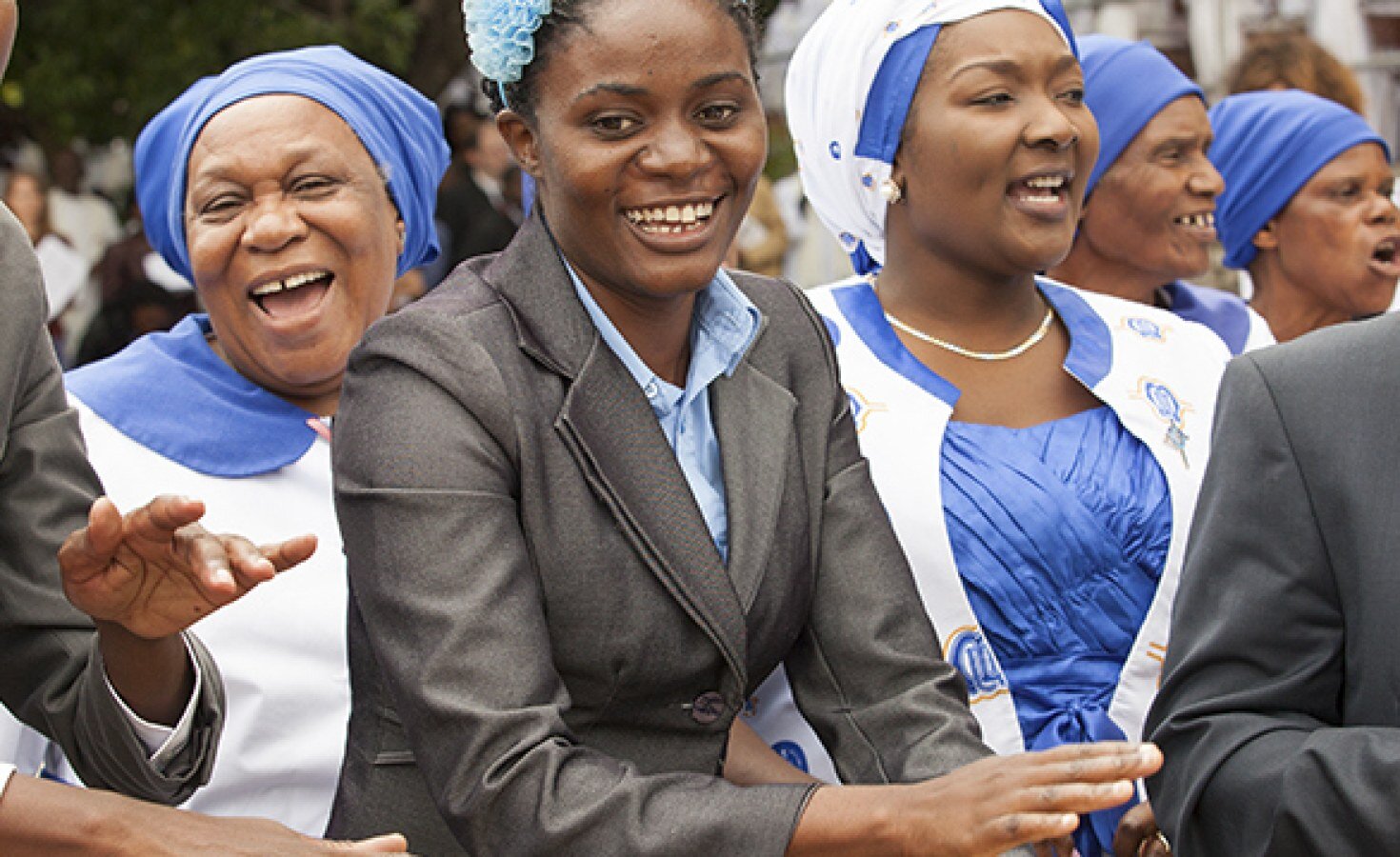Africa; Faith, Philanthropy, Community - How to Save Hundreds of Thousands from Malaria Amid COVID-19
by Andre VanWyk
Cape Town — The J.C. Flowers Foundation and Friends of the Global Fight Against AIDS, Tuberculosis and Malaria ('Friends') are focusing attention on how faith leaders, philanthropists and community partners are uniting against the scourge of malaria, despite the disruptions of Covid-19.
The two organizations hosted a digital convening on the topic in the lead up to this week's release of the World Malaria Report from the World Health Organization. Participants discussed how to maintain progress towards malaria elimination and how to mitigate the negative effect of Covid-19 on efforts to reduce malaria cases and deaths.
Representatives of both convening groups and their local partners emphasized the essential role of religious leaders in reaching 'the last mile' – communities far from health services and with limited educational opportunities.
Discussion moderator Mark P. Lagon is Chief Policy Officer for Friends, founded to support the The Global Fund, a Geneva-based partnership launched in 2002 to speed the end of Aids, TB and malaria as epidemics. Friends advocates for the Fund and educates and facilitates discussions about its work.
"Last year the two billionth bed net was distributed", Lagon said. In less than two decades, the Fund contributed over U.S.$13 billion to malaria control, and "the malaria-related annual mortality rate has been reduced by 50 percent".
But Covid-19, Lagon lamented, has interrupted the distribution of insecticide-treated bednets and access to antimalarial medicines, due to national lockdowns and measures to contain the pandemic. "The Global Fund took a survey on 1 November, and over half the countries they work with have partners reporting that they're experiencing disruptions to malaria service delivery, including 13 percent claiming high levels of disruption," Lagon said.
The Global Fund's Covid-19 Response Mechanism, Lagon said, has assisted 106 countries around the world, spending almost U.S.$16 to blunt the effects of Covid. The group deploys personal protective equipment (PPE), shores up health systems and mitigates the impact of the virus on Aids, tuberculosis and malaria programmes.
J. Christopher Flowers, philanthropist and CEO of private equity investment firm J.C. Flowers & Co, explained why his organisation became involved in the fight against malaria. "From its beginnings many years ago, the Anne and Chris Flowers Foundation has partnered with faith communities in Africa … We felt that while some problems don't have solutions, this one does," said Flowers, an active Anglican.
He pointed to the church as a primary partner in the battle against malaria. "We could not do what we do without each other," he said.
Committed both to regional solutions and to working collaboratively, the foundation launched the Isdell:Flowers Cross Border Malaria Initiative with Irish businessman and philanthropist E. Neville Isdell. The initiative began its work in hard-to-reach border areas of Angola, Namibia, Zambia and Zimbabwe in southern Africa.
Isdell, a former CEO and board chair of the Coca-Cola Company, told participants that he joined with Flowers to launch the cross-border initiative as someone who knows malaria personally. "I have had malaria," he said. "I was brought up in Zambia. I always thought it pretty scandalous that here is a disease that we know how to eliminate. We don't need to discover anything magical."
Malaria experts say that engaging border-spanning rural communities, as the Isdell:Flowers initiative does, is an important tool for ending malaria. Northern Namibia, for example, has reduced malaria disease and death substantially, but it cannot eliminate malaria from the area until more progress is made in neighboring Angola to the north. Mosquitoes, scientists point out, recognize no national boundaries.
"In these areas", Flowers said, "we have become convinced of the role of faith leaders who understand local realities and speak with moral authority". He cited faith leaders who include malaria teaching in their weekly services.
Dr. Jenny Dyer, founder of the 2030 Collaborative, an organisation that promotes awareness, provides education, and encourages advocacy for the United Nations Sustainable Development Goals, echoed the view that faith leaders are important agents of advocacy, and that their role in reducing malaria should be held up as an example and an inspiration.
"I don't think anybody has said this yet," she noted, "but it bears repeating: global health investments worldwide have halved the number of deaths caused by malaria in 57 countries. With the advent of Covid-19, we don't want to see a reversal of this incredible progress."
Supporting Phiri and Njovu, Dyer said the role of religious figures in the fights against infectious diseases has grown more important with time.
"That is the unique voice of faith leaders," she said. "They remind our elected leaders that this is not only the smart thing to do in terms of national security, economics and public health, but funding not only Covid-19 relief but also funding the fight against malaria is the right thing to do."
Dyer pointed to the United Methodist Church as an example of service. Over the past decade, the church donated more than U.S.$23 million to the Global Fund for antimalarial efforts. "Their life saving activities and distribution of insecticide-treated nets, indoor residual spraying and rapid diagnostic tools have proven them to be a significant non-governmental partner for the Global Fund," she said.

